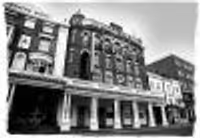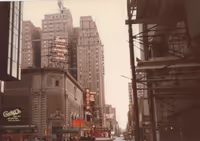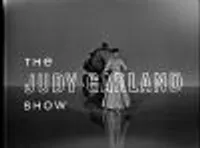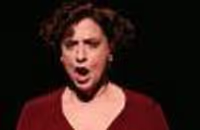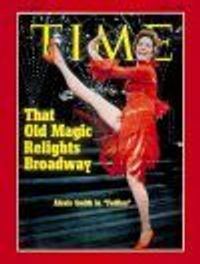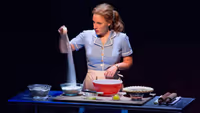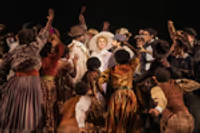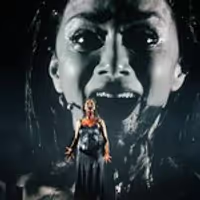THE HEIDI CHRONICLES Previews
#25THE HEIDI CHRONICLES Previews
Posted: 2/28/15 at 4:52pmThis post ^indirectly and directly addresses the concerns I raised, many of which were identified back in the 80s. I'm reminded of the revival of "Reckless," which of course has nothing to do with "Heidi." Yet "Reckless" in part inspired a particular kind of sub-genre of magic realism. Many (and to my thinking, lesser) plays employed what Craig Lucas did so effortlessly. When the revival arrived, and on B'way yet, it felt somewhat arch and neither as funny nor as moving as the original, ensconced downtown and played to perfection by the first company. "Heidi" in form or content hasn't been as copied, though its themes -- recently the wonderful Gina Gionfriddo's "Rapture, Blister, Burn" touches on the Heidi themes in bold new ways. The issues in "Heidi" are far from dated. Yet the theater has been tackling them ever since, just as the style and theatrics of "Reckless" have been recycled countless times. In particular, the shorthanded scenes in "Heidi" that feature near caricatures have ended up in short plays and SNL. It's harder to find freshness in drawing evocative slices of defining eras in such primary colors. It may be that the very techniques Wassterstein used so winningly could weigh her play down slightly, now that we've seen them and their content in so many other places. Just a question, albeit one at least three posts here seem to take on as problems.
Gothampc
Broadway Legend Joined: 5/20/03
#26THE HEIDI CHRONICLES Previews
Posted: 2/28/15 at 5:37pm
"When the revival arrived, and on B'way yet, it felt somewhat arch and neither as funny nor as moving as the original, ensconced downtown and played to perfection by the first company."
That's the way I feel about several plays. Some just don't belong in a big Broadway theater. Some that have been disappointing are "Little Shop of Horrors" "You're A Good Man Charlie Brown" "Falsettos" "Steel Magnolias". They just lose something when they move to Broadway. I just think some material is "Off-Broadway" and should remain in a smaller venue and that's a good thing.
#27THE HEIDI CHRONICLES Previews
Posted: 2/28/15 at 6:05pm
". On the other board, someone commented that an MFA playwriting professor had said HEIDI is Exhibit A in what NOT to do in a contemporary play."
I find such a creativity-smothering sentiment (of a widely-lauded play, no less) being taught to young writers more problematic than any issues with the play's structure.
#28THE HEIDI CHRONICLES Previews
Posted: 2/28/15 at 8:17pm
^I agree. I revisited the remark because I was startled by the audacity. Not to generalize, but that may explain the proliferation of some popular sub-genres which aren't necessarily superior (or easy to write). I do know, anecdotal evidence, there seems less acceptance of realism/naturalism than ever. I enjoyed the recent piece in the Times on Mac Wellman*, who helps his students find their own plays without superimposing stylistic or content dictums.
*Posted here, which may help make more of a persuasive case on this point than I can.
Mac Wellman, a Playwriting Mentor Whose Only Mantra Is Oddity
#29THE HEIDI CHRONICLES Previews
Posted: 3/1/15 at 12:02am
I went tonight. It was an almost sold-out show. I got a $40 rear mezz ticket. Great view. I was sitting next to the director who would mumble things like "Enter already" under her breath, which I loved.
I wasn't taken by the play at all. Parts of it interested me, and maybe it's this production, but none of the characters really grabbed me. I didn't care much about any of their pain or plight. And parts of it felt a little like Girls - that whole woah-is-me thing even though I'm doing fine and have money, a job, etc. I loved her big monologue and I thought she did a great job with it, and I was captivated by that moment. I just wish more of it felt like that. I didn't feel a lot of urgency from the rest of the show. The actors all felt very actory. I know Pinkham has been lauded by everyone, but his character just came off as a character to me. Just a sketch of a human being. Even in his more vulnerable scenes I found him kind of annoying. (He did get some huge laughs though).
After seeing the uninspired set design - just chunks of set pieces, but no real design theme - lame projections that felt super cheesy, and awkward lighting, not to mention that HORRIBLE poster design that makes the whole thing look like a Valentine's Day quirky comedy. I just didn't feel like anyone quite knew what to do with the piece. It doesn't strike me as something that upset me or made me think differently. There were moments of like "hell yea girl power" but then there were too many moments of references to things that most of the audience didn't get.
The pace of the whole thing really dragged. Why are those set changes at such a glacial pace? I'm assuming McKinnon knows this hence the "hurry up and enter" thing, but still it really killed the vibe.
iluvtheatertrash
Broadway Legend Joined: 11/9/04
#30THE HEIDI CHRONICLES Previews
Posted: 3/1/15 at 1:04am
I LOVE hearing that Pam is sitting in the mezz too. This afternoon, she was in the rear of the orchestra. I'm always glad to hear a director cares about EVERYONE in the audience.
I loved the production by the way. Moss and Pinkham are simply terrific.
mgldan
Chorus Member Joined: 9/21/13
#31THE HEIDI CHRONICLES Previews
Posted: 3/1/15 at 3:22pm
I saw yesterday's matinee and thought that Moss and Pinkham ignited the stage. Elisabeth Moss is just an incredibly watchable actress, whose character's emotions just effuse from her face and tone of voice. It's really easy to empathize with her. And I was underwhelmed with Bryce Pinkham in Gentleman's Guide, but here he shows a pathos that wasn't evident from his previous character. He acts like he belongs on that stage.
That said, the play started to drag for me about midway through the 2nd act. The pop culture references to past decades didn't really help, but obviously the meat of the play is Moss' character's relationships with Pinkham's and Jason Biggs' characters, and the tension is resolved well before the end. I tend to agree with the earlier poster who said that any scene that didn't involve the two male leads was sort of filler.
Jason Biggs was fine. Not nearly as entertaining as Bryce Pinkham, but I thought he sold his character's arc. I think that if he grows into the role a little more, he could add some needed depth and duplicity to his character's pursuit of Elisabeth Moss' character.
A note on the Saturday matinee audience: I've never been in a theater before where so many people acted like they were alone at home, watching TV, free to talk out loud to the characters who can't hear them anyway.
#32THE HEIDI CHRONICLES Previews
Posted: 3/1/15 at 7:53pm
The guy's phone next to me started beeping and he went to check it and Pam yelled "Oh come on!" I was loving it.
Maybe it's from not seeing other productions, but Pinkham's performance felt so forced and "ACTING." It didn't feel like a real human being, which is weird since Moss felt so grounded and real. I couldn't imagine why those two characters would be friends?
#33THE HEIDI CHRONICLES Previews
Posted: 3/2/15 at 8:37amWow, was I disappointed in this. Unbelievably dated and the acting was pretty bad across the board with Moss coming out the best of the 3 principles. No one seemed "real" - all were stereotypes, no one seemed real with Pinkham coming off the worst - a cartoon on stage. Did he realize he is no longer in AGGTLM? Biggs was unbelievably boring with no nuance to his portrayal. Nothing rang true - a major disappointment.
#34THE HEIDI CHRONICLES Previews
Posted: 3/2/15 at 9:10amI can't believe people are calling this dated. It felt fresh and relevant; it could have been written yesterday. Acting was excellent. Pinkham will probably win a Tony.
#35THE HEIDI CHRONICLES Previews
Posted: 3/2/15 at 9:23amAlways thought the play, and Wasserstein in general, were overrated, but am going because I'm a big fan of Elizabeth Moss, and am willing to be convinced that the play was really as good as the critics and award-givers thought.
Gothampc
Broadway Legend Joined: 5/20/03
#36THE HEIDI CHRONICLES Previews
Posted: 3/2/15 at 10:03am
I was sitting next to the director who would mumble things like "Enter already" under her breath, which I loved.
The guy's phone next to me started beeping and he went to check it and Pam yelled "Oh come on!" I was loving it.
So the director is interfering with the audience's enjoyment of the play? Doesn't sound like a very nice person.
#37THE HEIDI CHRONICLES Previews
Posted: 3/2/15 at 10:06amMy opinion but I don't even think Pinkham will be nominated.
#38THE HEIDI CHRONICLES Previews
Posted: 3/2/15 at 10:19am
I think the term "dated" as it applies to plays is often totally off base, but glad to see so many here seemingly using the proper meaning.
I'm reminded of the story of a review of The Crucible back just after the McCarthy era in which a critic ranted on and on about it being about a bunch of Pilgrims, for God's sake, how dated can you be? Whooosh was the sound of the play going over his head.
#39THE HEIDI CHRONICLES Previews
Posted: 3/2/15 at 1:20pm
Just to clarify, She was sitting directly behind me. I doubt anyone else would have noticed or heard her mumbling under her breath. And the guy had been on his phone the whole show and it had rang twice at that point. So she was justified.
Anyways, I agree with Anshel on all accounts. The reason to me, and I've thought about this, that it felt dated was this whole mentality of "can women have it all?" I know this play debuted not that long ago, but we have so many examples of women in powerful positions with families or women who are in powerful positions and don't want to have kids, or women who are in their 50s and single and decided they want to have kids, etc. I think that's why Heidi's struggles came off a little "Woe is me" which that last scene with Pinkham sort of comments on. Nothing was really spoken about women's inequality in the work place, etc. It was mostly do I get married and have kids or get a job? But the plot the non-existent plot just chugs along until that big monologue.
#42THE HEIDI CHRONICLES Previews
Posted: 3/2/15 at 9:30pmHas a woman weighed in here? I'd lIke to hear a female poster comment.
Playgoer1
Swing Joined: 2/19/15
#43THE HEIDI CHRONICLES Previews
Posted: 3/3/15 at 7:43amI'm a woman who saw Heidi on Broadway with Joan Allen and later Brooke Adams (both of whom married their Scoops, BTW), and I found the revival really moving and timely. I wish every young woman of my daughter's generation could see it because Elisabeth Moss is giving a beautiful, nuanced performance as a woman struggling to figure out what she wants and needs. I love British theater, but it makes me sad that a Pulitzer Prize winning play by a groundbreaking American feminist playwright is not one of the hottest tickets of the spring season. All of you who have loved it, please pass the word.
#44THE HEIDI CHRONICLES Previews
Posted: 3/3/15 at 8:24am
Always hated this play.
Shallow trappings of bourgeois would-be feminism served up for pulp Broadway consumption. A brainy, self-consumed heroine surrounded by cardboard, insufferably dopey women (did I mention these are the shallow trappings of feminism?), two somewhat less cardboard guys she needed to bed to make herself whole and, if all that weren't infuriating enough, as the apotheosis of her self-actualization, a baby!
All of this might have been, at least, diverting and funny (Wasserstein could do diverting and funny!). But the forced badinage landed like third rate Neil Simon even in the 80s.
Uncommon Women is a more daring, intelligent and heartfelt play. And funny!
Updated On: 3/6/15 at 08:24 AM
#45THE HEIDI CHRONICLES Previews
Posted: 3/3/15 at 8:31amHave to admit, I prefer the smaller, laser-focused "Uncommon Women," which actually seems more daring today. The Swoozie character's postponement syndrome, repeatedly opining that success in adulthood is necessarily delayed (my words, not Wassterstein's), might be poignantly apt in today's climate, economic and otherwise. The PBS recording of the play was simply perfect.
yellowse
Swing Joined: 5/2/13
#46THE HEIDI CHRONICLES Previews
Posted: 3/6/15 at 3:35pm
I came in unfamiliar with the play, but looking forward to seeing my first Wasserstein. My main complaint about the show was the period-specific references, but this play was written before I was born, so not unexpected. But if a play from the 1920s or 60s can be understood, surely one from the 80s can be?
But my huge takeaway was total lack of any connection to anything happening on stage, I was getting zero emotion from the actors, or between the three main characters. Believe me, I came in wanting to love Bryce Pinkham, but I just thought it was too caricatured.
#47THE HEIDI CHRONICLES Previews
Posted: 3/8/15 at 10:18pm
Just a seating question. Any major thoughts on orchestra vs. mezz? With the exception of the rear seating, the tickets are priced pretty much the same. There's a Telecharge discount offer available too.
I'm thinking about going on Thursday and the mezzanine is almost 100% available so I'm also wondering if I got a cheap rear mezz seat if I'd be able to move forward.
#48THE HEIDI CHRONICLES Previews
Posted: 3/8/15 at 10:31pm^ I sat in the mezzanine for Pippin, and it was perfect.
#49THE HEIDI CHRONICLES Previews
Posted: 3/8/15 at 11:16pm

Front mezzanine row B is great, sat there for Pippin but the Music Box is intimate great views from the mezzanine.
Videos


